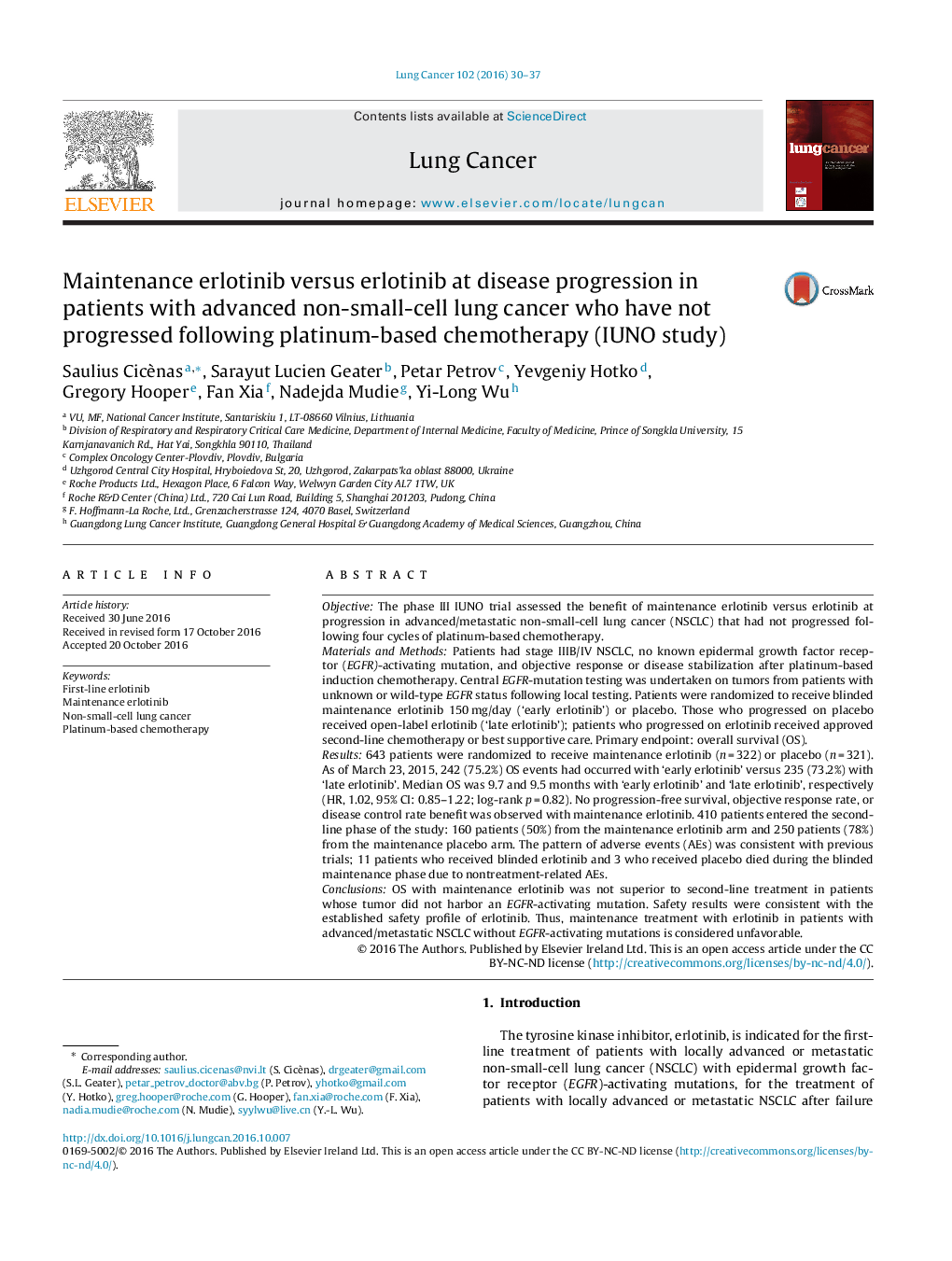| Article ID | Journal | Published Year | Pages | File Type |
|---|---|---|---|---|
| 5528461 | Lung Cancer | 2016 | 8 Pages |
â¢IUNO assessed 1L maintenance vs 2L erlotinib in NSCLC without EGFR mutations.â¢Median OS 9.7 months with 'early erlotinib' vs 9.5 months with 'late erlotinib'.â¢PFS during maintenance treatment was not superior with erlotinib vs placebo.â¢Safety results in IUNO were consistent with the known safety profile of erlotinib.
ObjectiveThe phase III IUNO trial assessed the benefit of maintenance erlotinib versus erlotinib at progression in advanced/metastatic non-small-cell lung cancer (NSCLC) that had not progressed following four cycles of platinum-based chemotherapy.Materials and MethodsPatients had stage IIIB/IV NSCLC, no known epidermal growth factor receptor (EGFR)-activating mutation, and objective response or disease stabilization after platinum-based induction chemotherapy. Central EGFR-mutation testing was undertaken on tumors from patients with unknown or wild-type EGFR status following local testing. Patients were randomized to receive blinded maintenance erlotinib 150 mg/day ('early erlotinib') or placebo. Those who progressed on placebo received open-label erlotinib ('late erlotinib'); patients who progressed on erlotinib received approved second-line chemotherapy or best supportive care. Primary endpoint: overall survival (OS).Results643 patients were randomized to receive maintenance erlotinib (n = 322) or placebo (n = 321). As of March 23, 2015, 242 (75.2%) OS events had occurred with 'early erlotinib' versus 235 (73.2%) with 'late erlotinib'. Median OS was 9.7 and 9.5 months with 'early erlotinib' and 'late erlotinib', respectively (HR, 1.02, 95% CI: 0.85-1.22; log-rank p = 0.82). No progression-free survival, objective response rate, or disease control rate benefit was observed with maintenance erlotinib. 410 patients entered the second-line phase of the study: 160 patients (50%) from the maintenance erlotinib arm and 250 patients (78%) from the maintenance placebo arm. The pattern of adverse events (AEs) was consistent with previous trials; 11 patients who received blinded erlotinib and 3 who received placebo died during the blinded maintenance phase due to nontreatment-related AEs.ConclusionsOS with maintenance erlotinib was not superior to second-line treatment in patients whose tumor did not harbor an EGFR-activating mutation. Safety results were consistent with the established safety profile of erlotinib. Thus, maintenance treatment with erlotinib in patients with advanced/metastatic NSCLC without EGFR-activating mutations is considered unfavorable.
